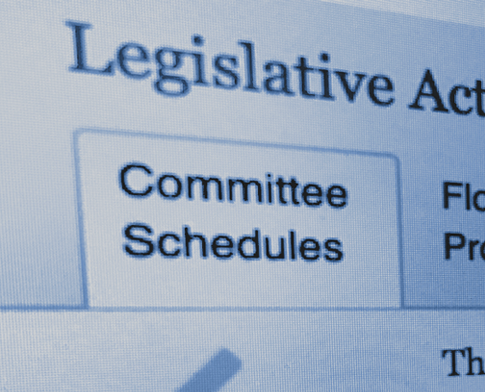Chairman Brady on Tax Reform 2.0, “Technicals” and TCJA Refinements
House Ways and Means Chairman Kevin Brady (R-TX-08) addressed a lobbyist group on Wednesday, September 26, after meeting with the House Republican conference to discuss the bills that comprise Tax Reform 2.0.
H.R. 6756 — American Innovation Act of 2018
H.R. 6757 — Family Savings Act of 2018
H.R. 6760 – Protecting Family and Small Business Tax Cuts Act of 2018
The Innovation package makes relatively modest changes to the taxation of start-up businesses. It addresses the following areas: increased expenses of organizational costs; simpler computations; and a new calculation of R&D credits and net operating losses when new equity capital is brought into the start-up. Tax attributes incurred in the first three years of active business (plus expenses incurred prior to the business becoming active) would now be deductible.
The Family Savings Act is the merger of House retirement and other savings proposals and Senate-passed Retirement Income Security Act into a single package. Regarding non-retirement savings, the bill creates a new Universal Savings Account allowing a person to deposit $2500/year with tax-free build-up and no tax on withdrawals (billed as a useful and more flexible alternative to 401(k)’s). Regarding 401(k) plans, the bill allows withdrawals without penalties in certain situations, such as having children, amongst others. It would also include a provision that eases use of annuity or life-income options for retirement savings. Finally, the bill also addresses provisions related to co-ops and charities.
The Tax Cuts Act would make permanent individual and small business rate cuts that would otherwise expire after 2025. The bill will also set 7% as the permanent floor on the medical expense deduction.
In his discussion, Chairman Brady stressed that as long as Republicans keep their majority, they need to begin setting an agenda for 2019 and 2020. He described the effort as “continuous improvement of the tax code,” rather than a messaging package. Brady said the committee and its leadership are intent on getting the savings and innovation pieces done this year in the hopes of creating momentum to continue the drive to permanence, particularly for business.
Chairman Brady also said House Ways and Means Republicans are talking to Senate Majority Leader Mitch McConnell (R-KY) about whether he can get the 60 votes necessary to pass the bipartisan Savings and Innovation bills.
Chief Tax Counsel Barbara Angus also addressed the group. She said that feedback from taxpayers on technical corrections has been very helpful, as have requests for interpretive guidance of the Tax Cuts and Jobs Act.
Regarding the savings bill, Angus noted that the committee is seeking a “natural and traditional” conference with the Finance Committee, given that there is considerable overlap between their bill and RISA.
Martin Reiser, Majority Whip Steve Scalise’s tax counsel, told the group that leadership is only whipping the Permanence bill. Reiser said that “we do not have a SALT problem” because the Alternative Minimum Tax (AMT) provisions in the TCJA allow Republican members from NY, NJ, CA and other high tax states to show their constituents that they are getting tax cuts, despite Democratic criticism and campaign ads. Reiser noted that, compared to the December vote on TCJA, “no’s aren’t turning to yes’s, but yes’s aren’t becoming no’s, either, so House passage is expected.” He also stressed that strong jobs growth and a buoyant economy are the winning message for Republicans to keep their majority.
The group asked whether there will be a technical corrections bill released for comment before the election. Angus responded that it would be useful but there needs to be a “critical mass” of corrections and Chairman Brady hopes to have it enacted before year’s end. At the same time, refinements to the TCJA are an on-going process. Angus stressed that these are two separate exercises: (1) technical corrections for TCJA and (2) improvements/refinements to TCJA, particularly in international areas where “transformational” changes were made. The more that Treasury does by regulation, the easier it will be.
One specific issue was raised by the group concerning the repatriation provisions in 965 because there is a potential over-payment problem. Angus agreed that a deemed repatriation is calculated on day one and paid over an eight year span, a concept that was developed by practitioner’s but the provision includes the word “installment.” In her view, that was not intended to invoke the installment payment rules where a taxpayer with insufficient resources can pay off a tax bill over time. That would require a recalculation each year; Congress intended for the repatriation liability to be calculated on day one and paid off over eight years. Angus agreed that the provision needs clarity, which would likely come from removing the term “installment.”
HOUSE.GOV
The Week Ahead
For the main events of the next week and more, go straight to the key events on the house.gov website.
SENATE.GOV
The Week Ahead
For the main events of the next week and more, go straight to the key events on the senate.gov website.


